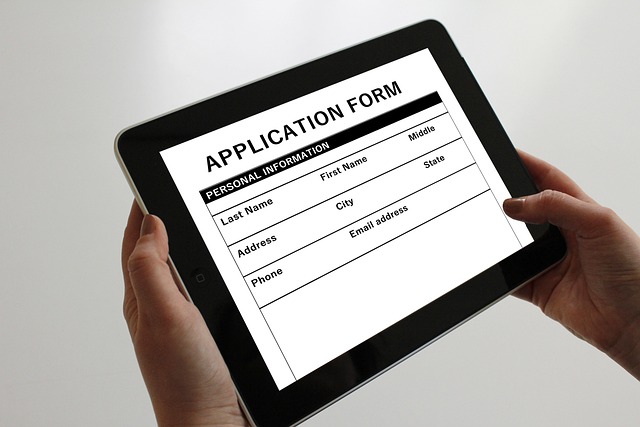Finding stable housing after being released from prison can be challenging, but applying for
housing assistance can make this process easier and give you access to affordable options.
Housing assistance programs are designed to help low-income individuals and families find
safe, stable housing that they can afford.
If you’ve been released after a lengthy prison or jail sentence, there are resources available to
support you in finding a place to live.
Knowing how to apply for housing assistance and where to look for help is important for getting
back on your feet and starting fresh.
Let’s go over how to apply for housing assistance and what you need to know to get started.
The first step is to understand the different types of housing assistance programs available.
The most common programs include public housing and Section 8 vouchers, both of which are
run by local housing authorities.
Public housing is government-owned housing that is offered at a reduced rent to people who
meet certain income requirements.
Section 8, also known as the Housing Choice Voucher Program, helps low-income individuals
pay for housing by providing vouchers that cover a portion of the rent.
These programs can be a great option if you’re struggling to find housing due to limited income
or other barriers.
Before you apply, it’s important to check if you meet the eligibility requirements.
These requirements can vary depending on where you live, but most housing assistance
programs are based on your income.
You’ll need to show that you have a low income compared to the average in your area, which is
usually determined by your household size and the total amount of money you make each month.
Because you may be just starting to work or have little income after being released, you are
likely to qualify for these programs.
However, you’ll also need to make sure there are no restrictions in your area for people with
criminal records.
Some housing programs may have rules about specific types of convictions, but many programs
have options for individuals who are reentering society.
To start the application process, the first place to go is your local housing authority.
Every city or county has a housing authority office that manages public housing and Section 8
applications.
You can visit the office in person, call them, or go online to learn about the specific application
steps.
The housing authority will give you information about what documents you’ll need to apply,
such as proof of income, identification, and possibly references.
It’s a good idea to collect these documents ahead of time so you’re prepared when you start the
application process.
Applying for Section 8 vouchers or public housing can involve filling out forms with details
about your income, employment, and household.
Be sure to fill out the application carefully and honestly.
Housing authorities often check the information provided, so it’s important that everything is
accurate.
If you need help with the application, don’t hesitate to ask for assistance from a reentry program
or a social worker who works with formerly incarcerated individuals.
Many organizations offer support with filling out forms and navigating the application process.
One thing to keep in mind is that there may be waiting lists for housing assistance.
Because there is often high demand for affordable housing, many public housing and Section 8
programs have long waiting lists.
This means it could take several months or even years before you’re able to move into a
subsidized unit.
However, don’t let this discourage you—it’s still worth applying, as you can explore other
housing options while you wait.
Some housing authorities may give priority to individuals who are homeless, have special needs,
or are in reentry programs, which could help you move up on the list more quickly.
If you’re struggling to find housing in the meantime, consider looking into transitional housing
programs that are designed for people leaving prison.
Transitional housing provides a temporary place to stay while you get back on your feet, and
some programs even help you apply for long-term housing assistance.
Reentry programs often have connections with local housing authorities and can guide you
through the process of finding both temporary and permanent housing.
In some cases, these programs may help you with the costs of deposits, moving, or even part of
your rent.
It’s also important to explore low-income housing options outside of government programs.
There are many nonprofit organizations and private landlords that offer affordable housing for
individuals with limited income.
These housing options might not be part of a formal government assistance program, but they
can still provide a stable and affordable place to live.
Reach out to community organizations, churches, or housing nonprofits in your area to ask about
any available housing opportunities for people who have recently been released from prison.
As you wait for housing assistance or search for other housing options, be sure to keep your
finances in order.
Budgeting is an important skill to focus on after prison, as you may need to manage limited
income while covering rent, utilities, and other living expenses.
Many reentry programs offer financial counseling and support to help you create a budget that
works for your situation.
They can also connect you with resources like food assistance, transportation vouchers, or job
placement programs to help reduce your financial burden while you search for stable housing.
In conclusion, applying for housing assistance after being released from prison is an important
step toward securing stable and affordable housing.
Programs like public housing and Section 8 vouchers are available to help low-income
individuals find a safe place to live, and many reentry organizations are ready to support you
throughout the application process.
While waiting lists can be long, and the process may take time, knowing where to start and
gathering the right documents will help you move forward.
By seeking help from housing authorities, reentry programs, and community organizations, you
can find the right housing assistance to help you rebuild your life after prison.

